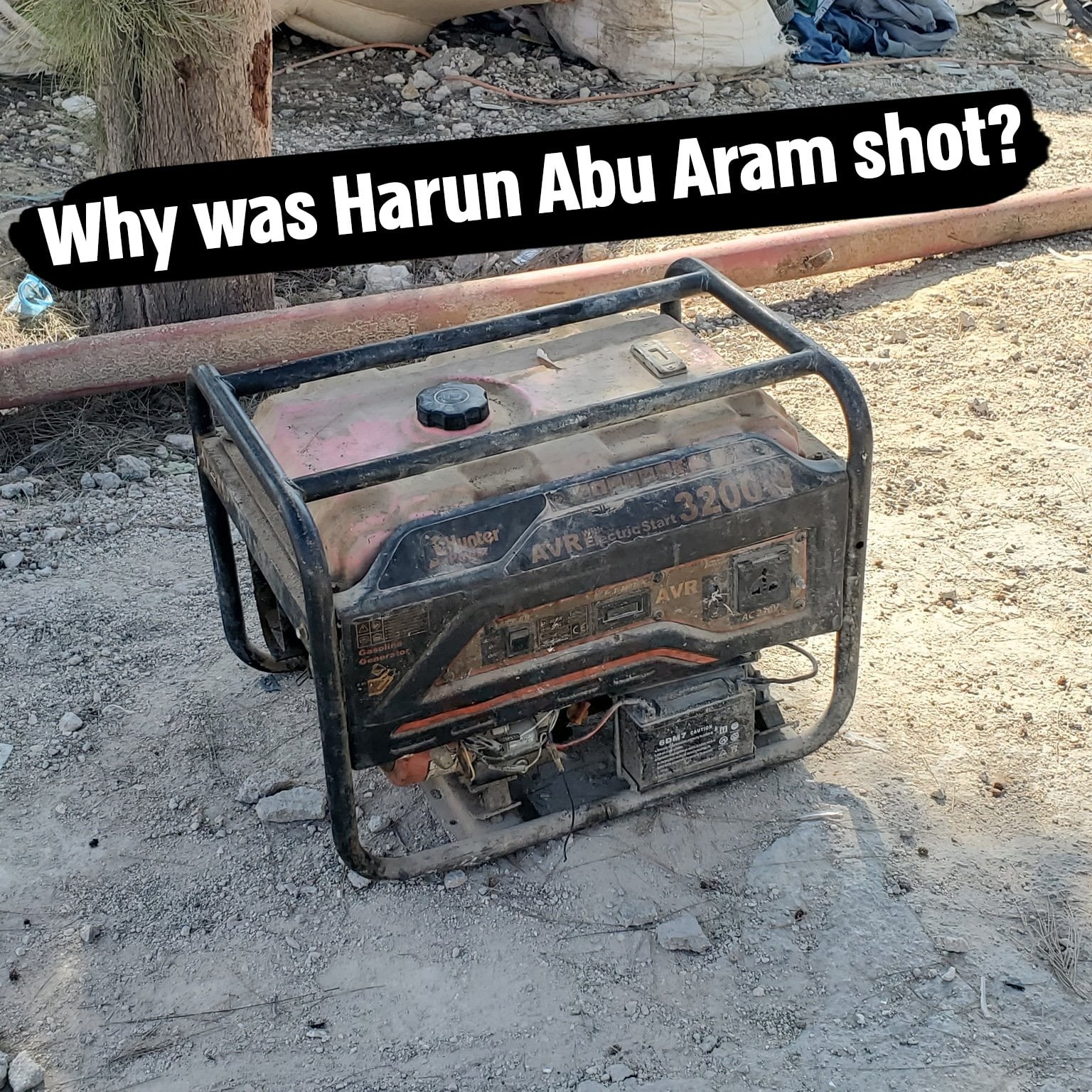Rebuilding Alliance is organizing this fundraiser and will be working with the family to meet their needs. They are a U.S. 501(c)(3) nonprofit organization that works to realize a just and enduring peace in Palestine and Israel founded upon equal rights, equal security, and equal opportunity for all.

Hamed Qawasmeh, Breaking the Silence, Jan 3, 2021
On Friday, IDF forces arrived at a Palestinian village in the South Hebron Hills and confiscated a generator. In the scuffle that followed – a video of which can be seen below – Harun Abu Aram was shot in the neck by the soldiers. He was not shot for attacking or threatening the soldiers; he was simply trying to prevent them from taking the generator.
On Friday, IDF forces arrived at a Palestinian village in the South Hebron Hills and confiscated a generator. Harun Abu Aram was shot in the neck by the soldiers—not for attacking or threatening them; he was simply trying to prevent them from taking it. pic.twitter.com/rjmW1aiTe9
— Breaking the Silence (@BtSIsrael) January 3, 2021
Abu Aram probably understood that he was taking a risk by intervening. He knew the soldiers wouldn’t just let him take the generator back. But village residents depended on that generator; getting by without it would be hard at the best of times, let alone at the height of winter. This is particularly true in the handful of villages in the South Hebron Hills in an area known as Massafer Yatta, which has been declared ‘Firing Zone 918’, an area that has been designated for IDF training. Even though many of the Palestinian families in those villages have lived there since before the State of Israel was even established, they are now on the verge of being evicted from their own land. In the meantime, the residents have been subject to constant harassment by Israeli security forces. In fact, Abu Aram’s house was demolished on the IDF Civil Administration’s orders less than two months ago.
This is no coincidence. Documents exposed by עקבות Akevot show that since the 80s, Israel has been making a concerted effort to establish its presence in strategic areas in the occupied territories through a variety of methods – including the creation of IDF training zones. (We wrote about it in the past here.)
So it’s clear this isn’t just about a fight over a generator; it’s about policy and facts on the ground.
Pro-occupationists would probably say that Abu Aram and his family had it coming to them — they shouldn’t be living there without building permits in the first place, they tell us. But who decides who gets the permits? None other than the IDF’s Civil Administration, the unelected military body in charge of the day to day governance of the West Bank. And an investigation carried out last year found that 98% of Palestinian requests for building permits were rejected (see article in comments). Is there any doubt whose side they’re on?
All of this takes place on the backdrop of two weeks of violent riots in Jerusalem and across the occupied territories by settlers attacking Palestinians and Israeli police in response to the death of a settler teen killed while fleeing from the police after allegedly throwing stones at Palestinians. On Friday, human rights organization Yesh Din said that they’d documented 25 incidents of violence against Palestinians in the West Bank alone, and there were more over the weekend.
In a healthy democracy, you’d perhaps expect the country’s leadership to condemn such violence. But when it comes to settlers, not only are they not condemned; if anything, Prime Minister Netanyahu and Internal Security Minister Amir Ohana went out of their way to embrace the family of the settler, to signal to the Israeli right that they’re sympathetic to the settlers’ concerns. Election day is fast approaching, after all.
But when it comes to Palestinians, trying to stop soldiers taking a generator can get you paralyzed.
That’s just another part of life under occupation.